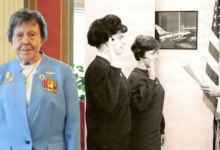CQC flags racism concerns in maternity services demoted to ‘inadequate’

Internationally educated midwives recruited by a trust to tackle serious staff shortages in its maternity services have faced racism from colleagues, according to a report from regulators.
It warned that these incidents of racism, and a failure to address them, were undermining efforts to improve low staffing levels, which regulators had previously highlighted as a cause for concern.
“We were concerned to find low staffing for midwives was still a significant risk to the safety of women”
Stuart Dunn
The report follows an inspection at Bedfordshire Hospitals NHS Foundation Trust, which identified cultural issues where not all midwifery staff felt “respected, supported and valued at a local level”.
It said maternity services there faced “challenges with promoting equality and diversity” and needed to work towards creating a culture in which patients and staff could “raise concerns without fear”.
The Care Quality Commission’s report, published today, also detailed how staff were concerned that incidents of racism would not be investigated in line with the trust’s stated values.
It said: “During the inspection, a number of midwives came forward and described a culture in which it was normalised for people from ethnic minority groups to tolerate discrimination from their colleagues and felt they were not able to bring their whole selves to work.
“Midwives and other staff we spoke to reported incidents of racism that had occurred towards the internationally recruited cohort of staff, alongside more subtle microaggressions that reflected racial stereotypes and a lack of cultural awareness,” it said.
The report said these microaggressions and other subtle forms of behaviour contributed to the international midwives feeling a “sense of exclusion from the wider team”.
The CQC report added that some of these instances had been reported formally as incidents, but it was “unable to establish what meaningful action had been taken as a result”.
In addition, due to high acuity on the wards and the training of internationally recruited midwives amid the staffing shortages, it was not always possible for staff to be supported in their learning.
This situation further added to the strain of working relationships and put further pressure on the internationally recruited cohort of staff, noted the regulator in its report.
The issues of racism and ongoing staffing pressures formed part of a range of challenges identified by the CQC, which had resulted in it downgrading its overall ratings for maternity services at the trust.
The regulator said that, during a two-day inspection in November last year, it had found a decline in the quality of maternity services at both hospitals run by the trust.
As a result, its ratings for maternity services at both Luton and Dunstable Hospital (L&D) and Bedford Hospital have declined from ‘requires improvement’ to ‘inadequate’, said the regulator.
It said the inspection was prompted by concerns around the safety, culture, and management of the maternity services, which were raised to the CQC by whistleblowers.
As well as the overall maternity service rating at Luton and Dunstable Hospital dropping from requires improvement to inadequate, so have the ratings for how safe and well-led the service is.
It has dropped from good to requires improvement for being effective. How responsive the service has again been rated requires improvement and caring has again been rated good.
The decline in this rating has also affected Luton and Dunstable Hospital’s overall rating and its well-led rating, which have both moved from good to requires improvement, noted the CQC.
Maternity services at Bedford Hospital have dropped from requires improvement to inadequate overall and for safe and well-led.
They have dropped from good to requires improvement for being responsive and have again been rated requires improvement for effective. Caring was again rated good.
However, the overall rating of Bedfordshire Hospitals NHS Foundation Trust and its services remains unchanged as ‘good’, noted the regulator.
The CQC highlighted that it previously issued the trust with a warning notice in December to focus its attention on making immediate improvements to safe staffing.
The trust had subsequently submitted an action plan but the warning notice would “remain live” until the issues were addressed, said the regulator.
Stuart Dunn, the CQC’s deputy director of operations in the East of England, said: “We were concerned to find low staffing for midwives was still a significant risk to the safety of women, people using these services, and their babies despite us telling the trust they needed to address this previously.
“The trust had taken steps to address the issue by recruiting midwives internationally, but at this inspection we found this programme was being undermined by racism against staff, by their own colleagues, and a lack of support from leaders.”
He said: “Some international midwives told us they often felt excluded, and that it was normalised for colleagues from ethnic minorities to experience discrimination from colleagues.
“In the trust’s 2022 staff survey, a third of all midwives reported experiencing at least one incident of bullying or harassment from colleagues,” noted Mr Dunn.
He added: “Leaders hadn’t always taken meaningful action to address these issues, but have started to put actions in place since we raised this with them.
“While staff were working very hard, low staffing issues meant people could not always access services when they needed it,” warned the regional CQC deputy director.
“Capacity issues were particularly severe at Luton and Dunstable Hospital, which had to re-direct people to other hospitals on the first day of our inspection,” he stated.
Mr Dunn continued: “We also saw women and people using the service at Luton and Dunstable hospital waiting a long time for call bells to be answered.
“Midwives in the community service told us day-to-day staffing was often difficult, as they were pulled in to cover the labour wards.
“This meant they weren’t available for their planned work in the community the following day, impacting on people’s care,” he said.
“We issued the trust with a warning notice in December to focus their attention on making improvements. Since the inspection they’ve produced an action plan to address our concerns.
“We’ll be monitoring these services closely, including through further inspections, to make sure people receive safe care while these improvements are implemented,” he said.
Meanwhile, inspectors also found other problems such as staff not always completing daily safety checks to ensure equipment was ready in the event of an emergency.
In addition, when things went wrong, leaders were not always investigating quickly or making changes to protect people from the same issue happening again.
“Any act of discrimination or racism is unacceptable and the trust is committed to ensuring any issues are addressed”
David Carter
Also, leaders did not always understand and effectively manage issues, not all staff were completing mandatory training and infection prevention and control risks were not always well managed.
The CQC added that physical design of the service did not always enable staff to meet people’s needs at Luton and Dunstable Hospital, though a new unit was being built and was due to open in 2025.
However, the CQC said staff worked hard to meet people’s needs in a compassionate way, even where they had limited resources.
In addition, both maternity services engaged well with the local community to plan services and made it easy for people to give feedback.
Staff also made sure women living with mental health problems, learning disabilities, and dementia received the necessary care to meet all their needs.
In response, David Carter, chief executive at Bedfordshire Hospitals, described the CQC’s feedback as “disappointing for us to hear”.
But he said: “It was reassuring that the CQC confirmed that on both sites staff treated women with compassion and kindness, provided a service which was inclusive and took account of women’s individual needs and preferences and achieved good outcomes.
“I want to thank our staff for their hard work and commitment during what has been a period of significant challenges,” he said.
Mr Carter added: “We are taking immediate action in the areas identified by the CQC, many of which have already been addressed since the inspection visit in November 2023.
“Like many other trusts across the country staff shortages within maternity continues to be a challenge for us but we are pleased to report that our vacancy rate for registered midwives has reduced to 6.6% on the L&D site, with a fully staffed department at Bedford.
“We were disappointed to hear that our international midwives reported issues of discrimination,” stated Mr Carter.
“Any act of discrimination or racism is unacceptable and the trust is committed to ensuring any issues are addressed.
He said the trust had a tailored induction programme for international midwives to help them adjust and was pleased to hear in the report that they were complimentary of the support they received.
He also noted that the trust had developed a tailored culture and development programme for its maternity staff to “foster a more inclusive and respectful working environment”.
“We are also currently running staff engagement events in July that will be attended by over 4,500 colleagues, focusing on increasing awareness and understanding of different cultural backgrounds and preventing discriminatory behaviours,” he added.






